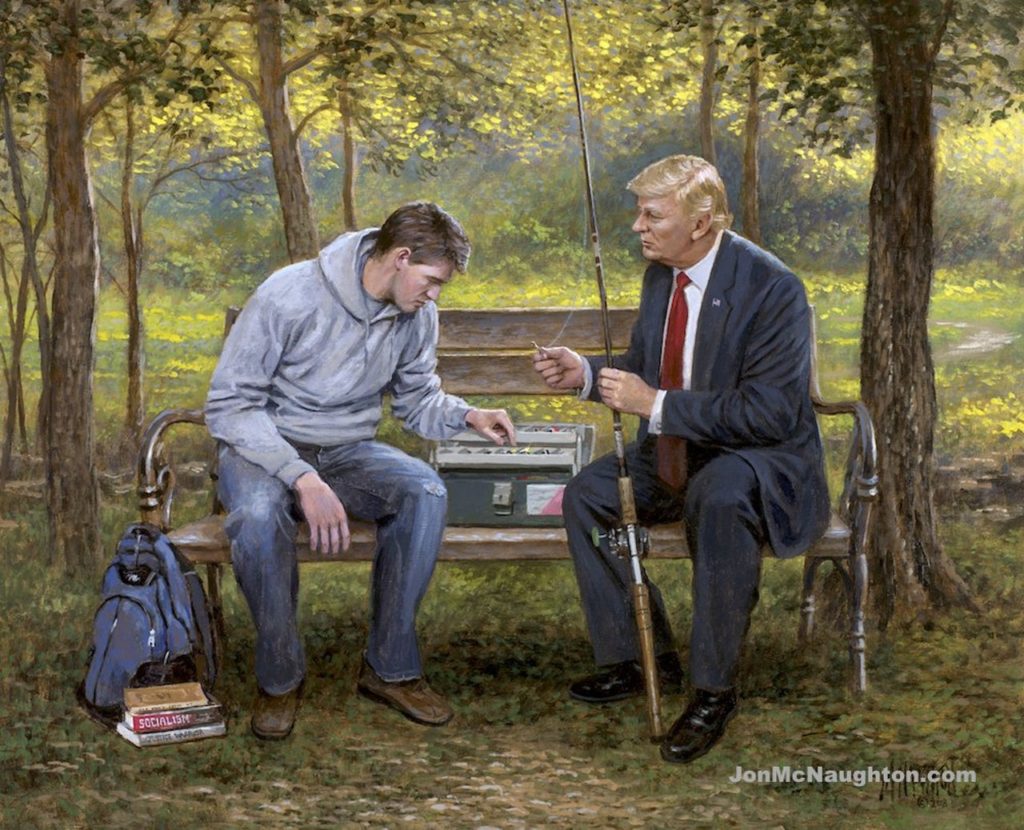There is no bottom

Not in the mood for jokes about the series, but feel free to fill my lacunae if you’re so inclined:
It was early September, and Ukraine’s new president, Volodymyr Zelensky, faced an agonizing choice: whether to capitulate to President Trump’s demands to publicly announce investigations against his political enemies or to refuse, and lose desperately needed military aid.
Only Mr. Trump could unlock the aid, he had been told by two United States senators, and time was running out. If the money, nearly $400 million, were not unblocked by the end of the fiscal year on Sept. 30, it could be lost in its entirety.
In a flurry of WhatsApp messages and meetings in Ukraine’s capital, Kiev, over several days, senior aides debated the point. Avoiding partisan politics in the United States had always been the first rule of Ukrainian foreign policy, but the military aid was vital to the war against Russian-backed separatist forces in eastern Ukraine, a conflict that has cost 13,000 lives since it began in 2014.
By then, however, Mr. Zelensky’s staffers were already conceding to what seemed to be the inevitable, and making plans for a public announcement about the investigations. It was a fateful decision for a fledgling president elected on an anticorruption platform that included putting an end to politically motivated investigations. . . .Aides were arguing in favor of “bowing to what was demanded,” said Petro Burkovskiy, a senior fellow at the Democratic Initiatives Foundation who has close ties to the Ukrainian government. They were willing to do so, he said, despite the risk of losing bipartisan support in the United States by appearing to assist Mr. Trump’s re-election bid. “The cost was high.” . . .
A tug-of-war ensued between a senior aide to Mr. Zelensky, Andriy Yermak, and another of Mr. Trump’s envoys to Ukraine, Kurt Volker, over the wording of the proposed public statement. Mr. Volker went so far as to draft a statement for Mr. Zelensky that mentioned both investigations.
Mr. Yermak pushed back, suggesting language that mentioned investigations but in general terms, so as not to antagonize the Democrats. Late in the negotiations, the American diplomats consented to dropping mention of Ukrainian interference in the 2016 election.
Even as Mr. Yermak negotiated the wording in August, the stakes were clear. While rumors had been swirling for months about a possible hold on military aid, by early August high-level Ukrainian officials had confirmed the freeze.
The trade soon became explicit. They were approached in September by Mr. Sondland, a major donor to Mr. Trump’s inauguration who had been appointed ambassador to the European Union despite having no diplomatic experience. At that point, he explained in blunt terms to Mr. Zelensky and Mr. Yermak, there was little chance the aid would be forthcoming until they made the public statement on the investigations. . .Mr. Trump wanted the Ukrainian president to speak on CNN, William B. Taylor Jr., the top American diplomat in Ukraine, testified.
But aides to Mr. Zelensky, on high alert to avoid any move that might irritate Mr. Trump, wondered if that was such a good idea, in that Mr. Trump habitually called CNN “fake news” in his Twitter posts.
They also uncovered a post from Mr. Trump attacking Fox News as “not working for us anymore!”
Nearly all Mr. Zelensky’s top advisers favored his making the public statement, said one of the officials who participated in the debate. United States military aid, they agreed, as well as diplomatic backing for impending peace talks to end the war outweighed the risks of appearing to take sides in American politics.
Straight up extortion. Not even a pretense of anything else.


